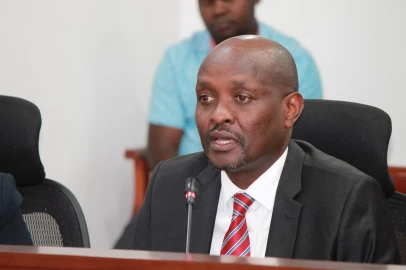The Higher Education Loans Board (HELB) has revealed that more than Ksh.40 billion remains unpaid by loan defaulters, with some debts dating back over two decades.
HELB Chief Executive Officer Geoffrey Monari, speaking during an interview with Citizen TV on Tuesday, said the unpaid loans are hampering the board’s ability to support new students in need of financial assistance.
“We have 51,594 students who graduated more than 20 years ago holding Ksh.8 billion, and 23,786 who graduated between 12 to 17 years ago holding Ksh.6.6 billion,” Monari disclosed. “The largest chunk—Ksh.26 billion—is owed by over 230,000 individuals who completed their studies within the last 11 years.”
He attributed the difficulty in loan recovery to informal employment, where many graduates work in unregulated sectors or are self-employed, making them harder to trace and compel to repay.
A breakdown by profession revealed glaring disparities in repayment rates:
- Accountants: Only 11% of the 22,000 in active practice are repaying; 2,420 are currently servicing loans while 2,000 have completed repayment.
- Doctors: Only 18% (2,115) of 13,816 practicing doctors are paying; 11,701 have not begun repayments.
- Lawyers: Out of 23,000 lawyers funded, only 2,644 are repaying.
- Engineers: Just 1,594 of 24,883 graduates have completed payments; only 894 are actively repaying.
- Teachers: The best-performing group, with 44,000 repaying loans and just 3,500 in default.
Monari said the board recently blacklisted 71,806 loan defaulters to pressure compliance. He emphasized that the Ksh.40 billion owed could fund education for nearly 290,000 university and college students for an entire academic year.
HELB loans carry a 4% annual interest rate and are expected to be repaid after graduation. However, Monari acknowledged that a significant number of former beneficiaries are “still settling down” or “in between jobs.”
The revelations come amid ongoing reforms in Kenya’s higher education financing system, with the government under pressure to expand access while improving recovery and sustainability of student funding.


